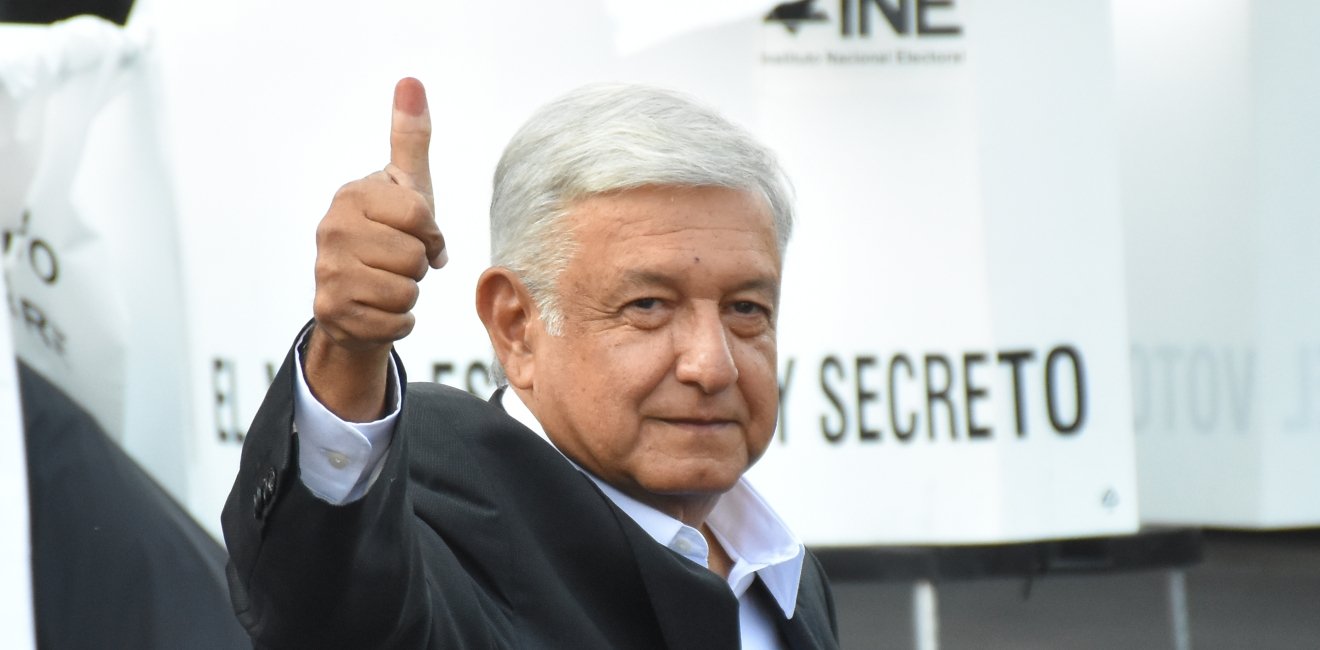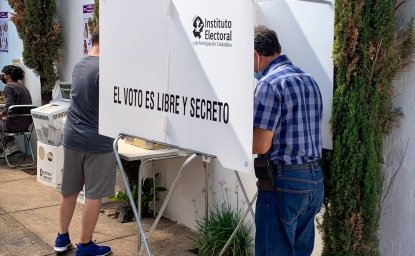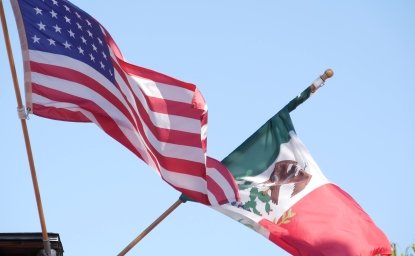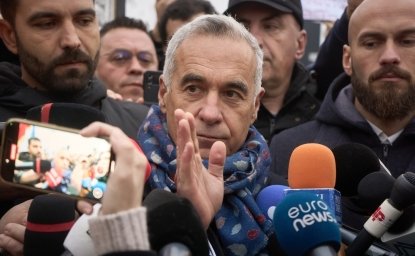The proposed referendum was conceived by the president as part of his objective to dominate and control the country’s politics and agenda and to legitimize his government. In its original version, the idea was to establish a new foundation for the president’s party to remain in power for the long haul, much like the PRI did in its time. As things stand today, it has become not more than a means to enhance the president’s gradually waning popularity.
The law establishes that, for it to be binding, a referendum requires the participation of 40% of registered voters – an impossible feat. The previous similar exercise back in 2021, about whether to prosecute former presidents, attracted less than 7% of voters. Nobody expects much more than that this time around. Regardless, the president’s immediate objective is far simpler: to be able to claim that 95% of those attending voted for him. But there’s more to it than this.
Nothing better illustrates the imbroglio that national politics is presently undergoing than a December 2021 Alarcón comic strip on the so-called “revocation of the mandate” of the president: “We don’t want him to go, but we want to be asked whether we want him to go to say that we don’t want him to go.” The objectives of the president in promoting the referendum are transparent, but that does not make the process devoid of deception. The original thrust was to give citizens the possibility to vote for the president to resign; the actual wording that citizens will vote on reaffirms the president’s tenure, making impeachment impossible.
There are two independent dynamics advancing around this alleged citizen feast. One is the strategy being advanced by the president’s allies to convince as many voters as possible to show up on election day. The other one is taking place within the cohort that supports the president. In its attempt to increase popular participation on referendum day, the former promotes the illusion that the referendum makes it possible to force the president to resign. The latter aims to make certain that the beneficiaries of the president’s largesse (monthly cash transfers to his base) show up to vote. The ultimate objective is to raise the threshold of voting as much as possible.
Back in 2018, Lopez Obrador won the election with 53% of the vote. After that, his popularity reached 67%, but has since declined to 54% because of the exposure of several cases of potential corruption by the president’s brothers and son. As a result, the referendum has recently become much more than a tool to re-legitimize his rule: it has become his survival strategy. Today, nothing is more important to him than the referendum; for the president, everything hinges on the result.
Nobody, starting with the president, expects the referendum to change the status quo. His true aim is to gain an edge in the polls and to exploit his (alleged) victory to reload his popularity. Regardless of the actual outcome, the president will celebrate that the majority of voters approved of his presidency. He will repeat this over and over, even while most citizens, starting with those that refuse to participate in what many see as a charade, will have stayed out. Should the outcome be truly extraordinary in the number of participants, he may launch a frontal assault against the National Electoral Institute (INE) to reestablish executive control of elections, like in the old PRI times. As Stalin is supposed to have said, what matters is not who votes, but who will count the ballots. Retaining power beyond the current presidential term is the critical agenda of the president’s hardline advisors and supporters and the referendum is a key means to accomplish that.
Beyond the narrative and its daily expression in the form of a press conference, the president is experiencing the avatars of declining control, an inevitable trait of all governments as they advance through the second half of their administration. The real question heretofore is how negative the slope will be. The steeper the decline, the more likely Mexicans will experience a true competition for presidential succession; alternatively, if the government succeeds in maintaining a semblance of stability and order, the easier for him to nominate a successor and control the outcome. A truly fluid process.
Were the referendum to turn into an actual exercise in citizen participation, the competition would become far more vivid. So far, it has been Morena and its organizations that have been promoting the vote. However, many other organizations, most of them opposed to the president’s policies, have become quite active in attempting to convince them that a presidential defeat is actually possible. Hence, the competition will surely linger.
For an avowed student of history, President Lopez Obrador never understood Napoleon’s maxim that “to get power you need to display absolute pettiness. To exercise power, you need to show true greatness.” Reaching out to those who did not vote for him has not been part of his equation. Thus, the referendum is a perfect example of his persistent pettiness, for his objective has nothing to do with building citizenry, leading a true transformation of the country’s politics or improving the peoples’ livelihood, but with his unflinching desire to increase his power and impose himself on the half or Mexicans that do not follow him blindly.






